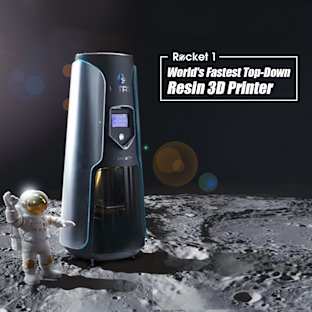What We Need
This is a unique and diverse story which needs to be told; however, we can't do it without your help. The film serves as a unique platform because of its ability to reach a widespread audience. It's also an expensive platform. We have been working on this film for four years, traveling across two continents and filming extraordinary people and events. In order to bring this vision to life and present this film in the most authentic way possible we still need assistance with post-production. Your contribution will pay for animation, graphics, film score, sound-mix, editing and additional items that are essential for the completion of this film.
![]()
![]()
The Leaders
![]()
Casey Camp-Horinek
Casey, of the Ponca Nation of Oklahoma, is a long-time native rights activist and environmentalist who is at the forefront of many efforts to educate and empower both Native and non-Native communities on environmental and civil rights issues. She has embraced the role of First Nation’s spokesperson against the KXL pipeline, and she is at the source of the Indigenous Women’s Treaty, which lays the groundwork for an international women’s solidarity network. In 2017 she lead the Ponca Tribe of Oklahoma to take an historic step to enact the Rights of Nature. She is now traveling the world, empowering communities to successfully enact local Rights of Nature legislation to protect ecosystems, their communities and just climate solutions.
![]()
Melina Laboucan Massimo
Melina Laboucan-Massimo is a member of the Lubicon Cree First Nation from Northern Alberta, Canada. She has worked on social, environmental and climate justice issues for the past 15 years. Currently a Fellow at the David Suzuki Foundation, Melina's research is focused on Climate Change, Indigenous Knowledge and Renewable Energy. Facing first hand impacts of the Alberta tar sands in her traditional territory, Melina has been a vocal advocate for Indigenous rights. For over a decade, Melina worked as a Climate and Energy Campaigner with Greenpeace Canada and the Indigenous Environmental Network internationally. She has written for a variety of publications and produced short documentaries on tar sands, climate change, water issues and Indigenous cultural revitalisation. Melina has studied, campaigned and worked in Brazil, Australia, Mexico, Canada and across Europe focusing on resource extraction, climate change impacts, media literacy and Indigenous rights & responsibilities. Melina has also worked on the issue of Murdered and Missing Indigenous Women in Canada after the suspicious death of her sister Bella, whose case still remains unsolved.
Melina holds a Masters degree in Indigenous Governance at the University of Victoria with a focus on Renewable Energy in First Nation communities. As a part of Master thesis, Melina completed a 20.8 kW solar installation in her home community of Little Buffalo, which powers the health centre in the heart of the tar sands. She has also built solar installations for other Indigenous communities to block pipeline expansion such as the Kinder Morgan pipeline. Her most recent project is hosting a TV series called “Power to the People”, which documents renewable energy, food security and eco-housing in Indigenous communities across North America. Melina currently serves on the Board of 350.org as well as the steering committees of Indigenous Climate Action and Seeding Sovereignty.
You view more at https://www.lubiconsolar.ca
https://m.facebook.com/lubiconsolar/
![]()
Yudith Azareth
YUDITH NIETO is a queer Mexican-American artist and organizer originally based in Houston, Texas, enjoying spending time in the bayous of Louisiana working on projects like CRY YOU ONE an outdoor performance and storytelling platform from the heart of Louisiana’s disappearing wetlands.She’s worked with frontline communities across the country to create,develop and amplify community-led media around just transition stories, artbuilds in solidarity with intersectional movements for a decolonized direct action approach. She has collaborated on initiatives that focus to create youth leadership and art in activism trainings to teach people about environmental issues that affect their communities through arts, media and cultural organizing.
She is part of the core leadership circle for Another Gulf Is Possible antiracist, decolonized, abolitionist frame and a youth organizer with Los Jardines Institute. For over 5 years, Yudith has been fighting for the rights of her fenceline community in Manchester, Houston in collaboration with Texas Environmental Justice Advocacy Services (t.e.j.a.s) and recently named one of Grist.org 50 Fixers of 2018.
![]()
Bryan Parras
Bryan Parras is one of the Gulf Coast's most dynamic environmental justice organizers fighting along the entire central and eastern United States. Bryan grew up in a community on the east side of Houston, Texas, near one of largest concentrations of petrochemical plants, refineries and storage tanks in the world.
Bryan is deeply involved in the documentation of environmental racism experienced by marginalized communities from Houston and throughout the greater Gulf Coast region. Bryan has maintained his indigenous roots by core values that have survived over 500 years of suppression. Bryan hopes to learn more about his indigenous roots by reconnecting with other indigenous communities and practices.
In 2016, Bryan helped organize the Peace & Dignity Journey along the Gulf Coast, connecting New Orleans with Houston and for the first time opening up the Gulf Coast to the continental journey awakening old trails and trade routes from South to North. Bryan continues to help lead the rising environmental justice movement and is currently helping people in Houston and the Gulf Coast fight for a just Recovery after Hurricane Harvey. For Harvey’s one-year anniversary Bryan organized a People’s Tribunal with a coalition of housing, immigration, labor and environmental organizations.
What You Get
When you support this campaign, you have the opportunity to receive a wide variety of incentives as a token of our appreciation. Some of the perks include a personal shout-out on the film's Facebook page, a private link to view the film as soon as it is released, a ticket to the film's premiere, and even an executive producer credit on the film! We thank you all personally for your contribution to this work and your commitment to the movement.
![]()
































































